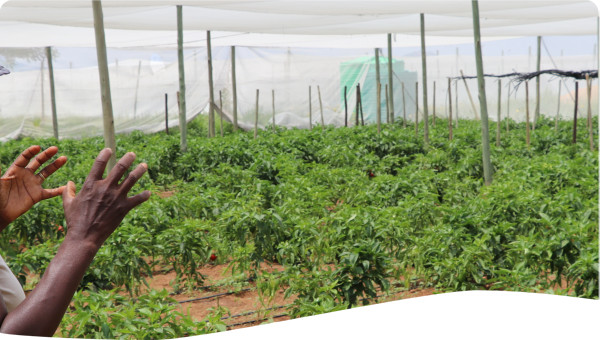In Kenya’s arid and semi-arid lands (ASALs), recurring droughts threaten pastoral livelihoods and ecosystems. Justdiggit engages pastoral women in landscape restoration through grass seed banks and other regreening enterprises. By combining traditional knowledge with scalable nature-based solutions, the initiative restores degraded rangelands, improves fodder and livestock productivity, strengthens household incomes, and empowers women as environmental stewards and decision-makers.
Kenya’s ASALs cover a large portion of the country and host 36% of the population. They are central to national livestock production, supporting 70% of Kenya’s herd. Livestock rearing forms the backbone of household income in these regions, but increasing drought frequency has devastated pastoralist livelihoods. For instance, the 2008–2011 drought caused USD 8 billion in losses to the livestock sector, leaving families poorer and food insecure.
The vulnerability of pastoralists is compounded by dependence on livestock, limited alternative livelihoods, and scarce access to markets for pasture and related products. As droughts intensify, households—particularly women and children—bear the brunt through malnutrition, reduced food security, and eroded resilience. Addressing these challenges requires interventions that restore ecosystems, provide reliable income, and strengthen community capacity to withstand climate shocks.
Justdiggit is an organisation dedicated to reversing land degradation and building resilience in Africa’s drylands. In Kenya, it has partnered with local communities to implement nature-based, low-cost, and scalable restoration techniques. Its approach focuses on reintroducing vegetation across degraded rangelands to improve soil health, water availability, biodiversity, and long-term sustainability.
Recognising the pivotal role of women in pastoralist societies, Justdiggit places them at the heart of its interventions. Women in ASALs are primary managers of land, water, and fodder, ensuring resource use even during droughts. Their Indigenous ecological knowledge, combined with innovation and entrepreneurial spirit, makes them critical actors in both household survival and community resilience.
By engaging pastoral women directly in regreening enterprises, Justdiggit tackles not only the environmental degradation but also the structural challenges of poverty, exclusion, and gender inequality in ASALs.
Justdiggit’s initiative focuses on grass seed banks as the central mechanism for combining ecosystem restoration with women’s empowerment.
1. Mobilising and training women
- Women’s groups are identified and supported with training, resources, and tools to establish grass seed banks on degraded communal land.
- Women manage these banks exclusively, planting Indigenous grass species to restore pasture and biodiversity.
2. Restoring degraded rangelands
- Seed banks transform bare lands into productive grasslands that provide fodder for livestock and act as reservoirs of resilience against climate shocks.
- Women collect, cultivate, and package seeds, which are then sold to other community members. This enhances both pasture access and household incomes.
3. Market integration
- By packaging and marketing grass seeds, women access new economic opportunities along the value chain.
- Justdiggit links women’s groups with markets, boosting livestock nutrition, milk yields, and cash flow for pastoral households.
4. Expanding restoration techniques
- Beyond grass seed banks, women participate in Pastoral Managed Natural Regeneration (PMNR), re-greening rangelands by protecting natural seedlings.
- They also contribute to biodiversity conservation by cultivating Indigenous plant varieties and protecting endangered species.
5. Women-led enterprises
- Women extend restoration into eco-tourism, agro-processing, and fodder production, diversifying income streams and reducing reliance on livestock alone.
- Entrepreneurial activities increase household resilience, create social capital, and strengthen women’s visibility as leaders.
6. Social transformation
- The initiative empowers women as environmental stewards and decision-makers. It amplifies their voices in governance and fosters gender equity.
- By integrating women into landscape restoration enterprises, Justdiggit addresses ecological, social, and economic challenges in tandem.
Women champions
- Jackie Kemboi, known as the “Justdiggit regreening queen,” has emerged as a leader. She trains women in seed cultivation and harvesting, significantly increasing the productivity of grass seed banks.
- Inspired by her mother, an FMNR champion, Jackie promotes community mobilisation and women’s engagement in SLM, blending personal experience with technical expertise.
The initiative has yielded significant environmental, social, and economic outcomes:
1. Ecological restoration
- Grass seed banks and PMNR practices have reversed degradation on communal lands, creating green corridors and restoring ecosystem services.
- Restored vegetation enhances soil health, reduces erosion, and improves groundwater recharge.
2. Improved livestock and household resilience
- Re-greened rangelands provide diverse fodder, improving livestock nutrition and increasing milk yields.
- Improved fodder translates into higher incomes and better food security for pastoral households.
3. Women’s empowerment
- Exclusive ownership and management of grass seed banks by women’s groups enhances their economic independence.
- Women gain recognition as custodians of biodiversity and leaders in sustainable land management.
- Their participation in restoration enterprises amplifies their voices in decision-making processes and fosters gender equity.
4. Economic diversification
- Marketing of grass seeds creates new revenue streams for women, linking them into wider value chains.
- Women-led enterprises in eco-tourism, agro-processing, and honey production broaden income sources, reducing dependency on livestock.
5. Social transformation
- Women leverage traditional knowledge for conservation, blending Indigenous practices with innovative restoration.
- Their role as trainers, guardians of biodiversity, and entrepreneurs builds confidence and inspires replication across communities.
6. Champions and leadership
- Figures like Jackie Kemboi inspire grassroots mobilisation and knowledge-sharing. Her leadership demonstrates the transformative role of women in re-greening and resilience-building.
- The generational legacy of women FMNR champions underscores the sustainability of women-led restoration.
Overall impact
The initiative highlights how women-led restoration enterprises strengthen drought resilience, combat degradation, and foster inclusive development. By combining ecological recovery with gender empowerment, Justdiggit offers a replicable model for other ASAL regions facing similar challenges.
Grass seed banks are a simple, scalable, and cost-effective tool that both restore degraded rangelands and empower women with income-generating enterprises.
Engaging pastoral women as custodians of land integrates traditional knowledge with modern restoration practices, ensuring sustainability and community ownership.
Linking restoration to markets increases incentives for sustainability, creating livelihoods that support resilience beyond subsistence.
Women champions like Jackie Kemboi demonstrate the power of role models in scaling restoration efforts and inspiring replication.
Combining ecological, economic, and social outcomes in one model ensures replicability in other drought-prone ASAL regions globally.

